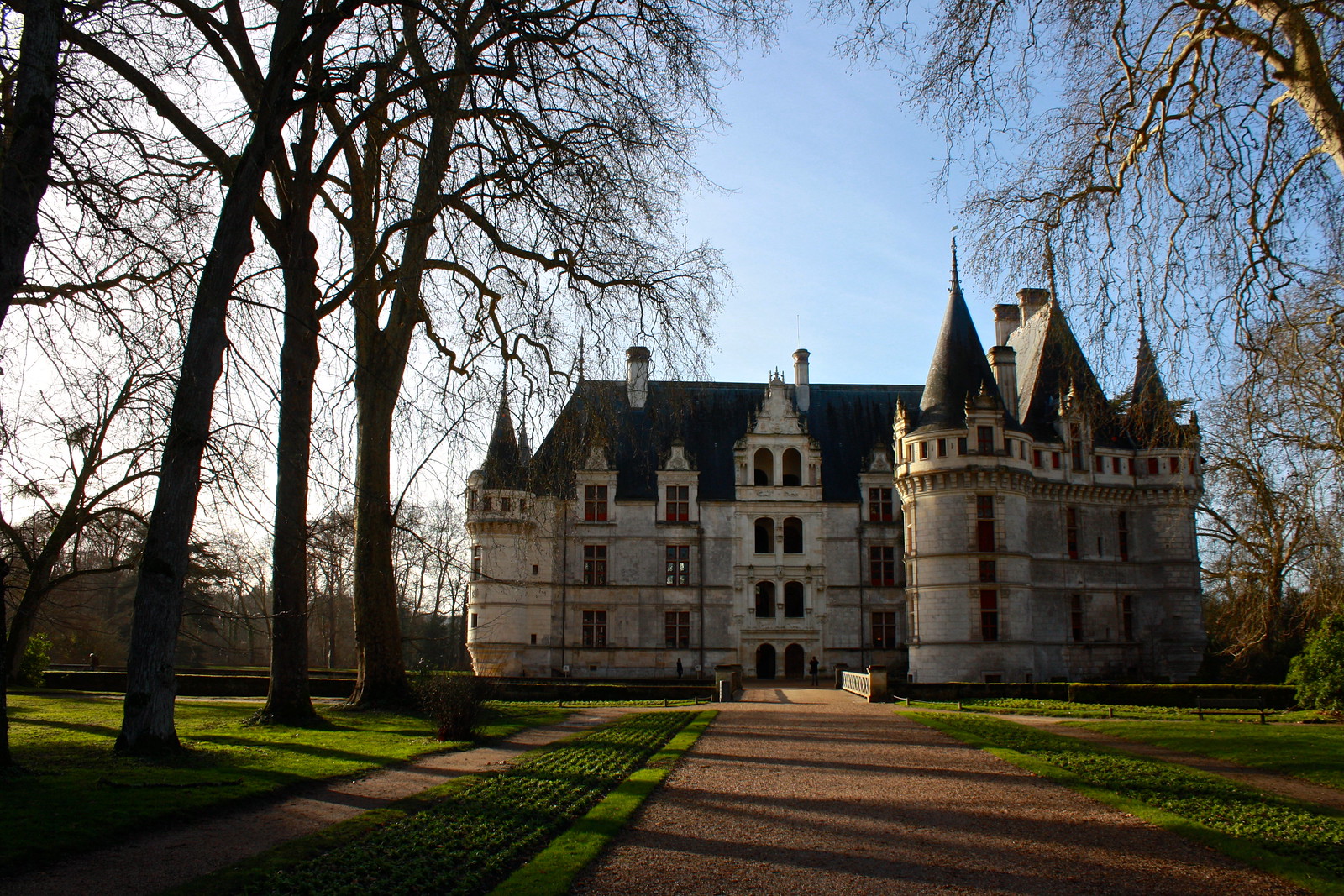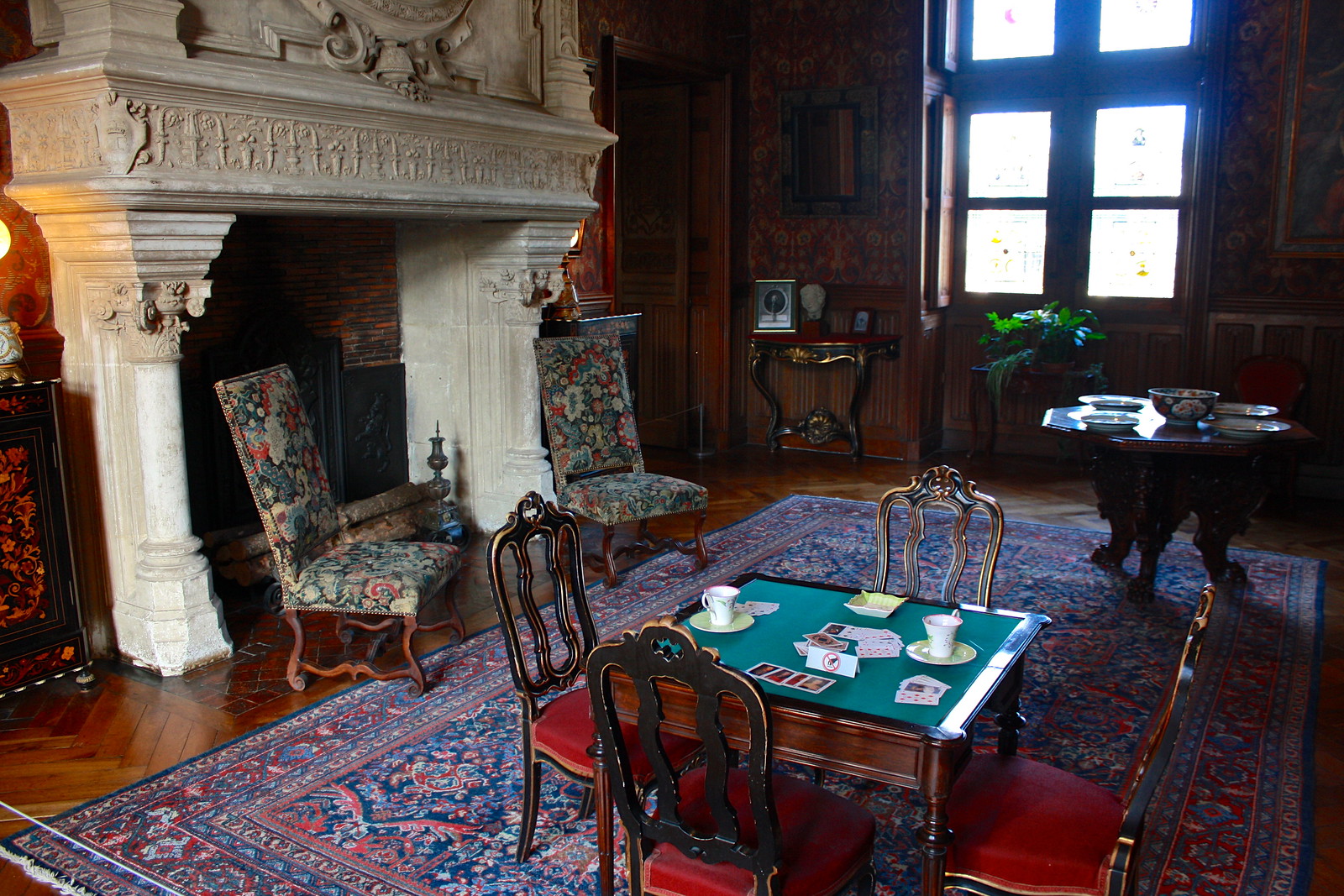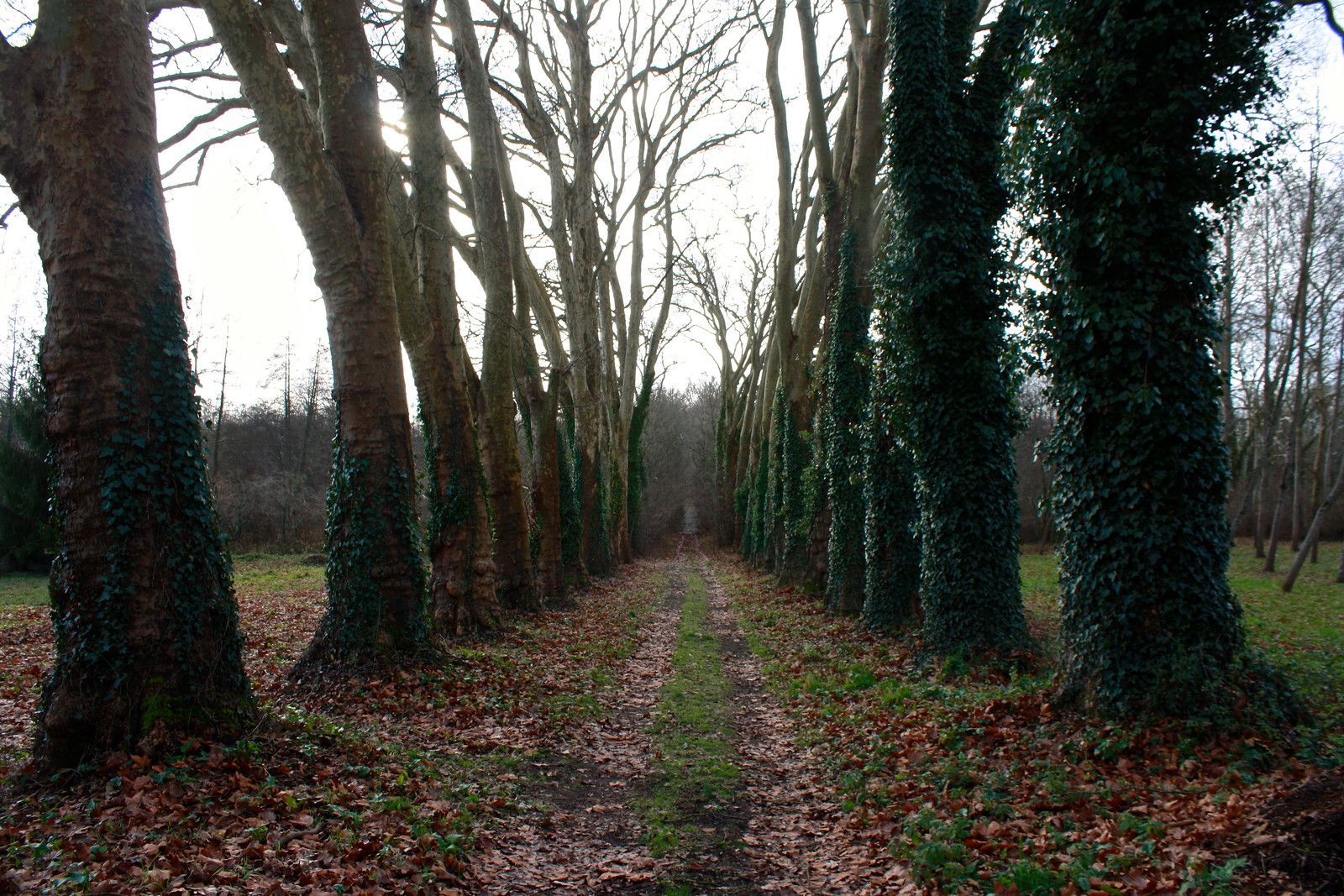While in France’s
Loire river valley in December, I visited the châteaux of Chinon and Azay-le-Rideau in the western side of the region. The
fortress in Chinon really impressed me as it had some great historical connections to Eleanor of Aquitaine, a medieval ruler of southern France and a queen of England. I had intended on seeing Eleanor’s final resting place in the nearby royal abbey of Fontevraud, but I wasn’t able to visit the abbey in the off-season without any public transit connections there from Chinon. Devastated (okay, just disappointed…), I scrambled to find a replacement to fill up the day I would have spent at the abbey.
Enter
Azay-le-Rideau (pronounced “ah-zeh luh ree-doe” [a.zɛ lə ʁi.do]). Rick Steves ranked it first on his list of “Châteaux West of Tours” in his France guidebook, not even mentioning Fontevraud and putting Chinon third, so I decided to trust his recommendation and take the
train bus there the next morning.
The château
When I got there, I was so glad the turn of events happened the way they did; this was a visually-stunning mansion. Small by comparison with the rest of the region’s lodges,
it was constructed on an island in the Indre River over the site of a burned-down castle (burned down by Charles VII of France…the same king to whom Joan of Arc rode to in
Chinon during the
Hundred Years’ War…see how this trip all ties together?).
It was built in the same Italian Renaissance style as other famous châteaux on the Loire River, with plain, stately façades; round, hefty turrets; dark, slate-blue roofing; and gleaming white stones.
Construction on the mansion began in 1518 at the request of the French royal treasurer, Gilles Berthelot, who wanted a residence of his own to loudly proclaim his own wealth and status. Things went along swimmingly until 1527, when his cousin (king François I’s superintendent of finance) was found guilty of stealing money and executed. Afraid his own financial misdeeds would soon be uncovered (and his own head on the chopping block), Berthelot went on the run and died two years later in exile.
The château was still unfinished when the king gifted it to Antoine Raffin, one of his knights, in 1537. He chose not to complete the original plans but instead left the house with a partially-enclosed patio—the unique backward L-shape (or Γ-shape) plan that remains to the present day.
The village
The
town of Azay-le-Rideau itself was, in a word, sleepy. It reminded me a lot of the small-town Spanish
pueblos near where I live in
Úbeda, with few residents and businesses and not much to see or do outside of the castle at the southern edge of town. After spending maybe two hours tops at the whole château grounds, I was stuck in town for another three hours until the train back to Chinon would arrive, so I got pretty bored. I took that as my sign to eat
a Nutella crêpe—always a good idea in France!
On the other side of the river across from the château there was a super-interesting
flea market that made me wish I had brought an extra suitcase along. I passed by all sorts of furniture, old books, silverware…basically an Antique Rhôdecheau of countless items that would make an interior decorator go gaga.
What is your favorite Loire Valley château? Do you enjoy visiting castles or mansions when you travel? Comment below!







